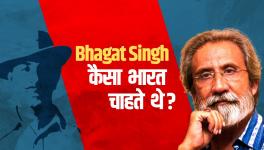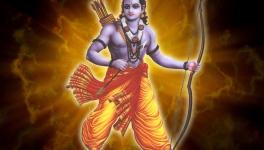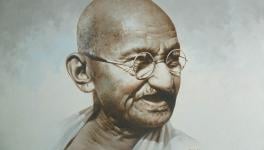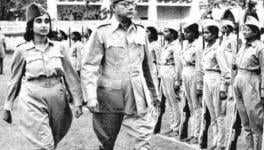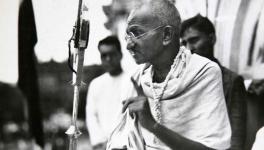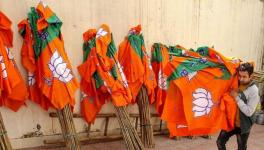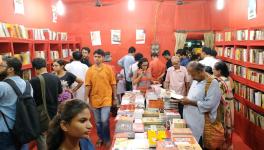‘Dhaai Aakhar Prem’: A One-of-a-Kind Public March
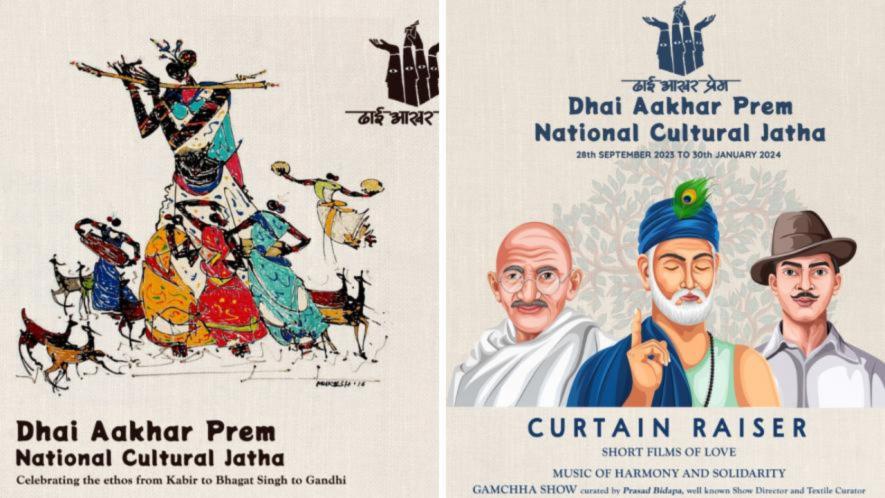
New Delhi: In today’s day and age, the idea of walking across villages on foot, staying there, trying to understand regional music, dances and arts and trying to convey one’s messages through songs and hand woven gamchhas, what can it be other than an obsession or a passion?
But this passion has led to the envisioning of an awe-inspiring journey spanning the whole country. People from different cities and regions met, tried to find the root causes of the decay, hatred and dejection felt all over the society. In this process, one’s own shortcomings and flaws were also taken into account. All this culminated into the same old answer, like Gandhi said, “Go to the people, go to the villages.”
This way, a one-of-a-kind journey was envisioned which received its name from Kabir’s Dhaai Aakhar Prem (two and a half letters of love), which drew inspiration from Gandhi. The goal of the march is to create a country and society along the vision of revolutionary youth like Bhagat Singh, build a society based on equality and love.
Slowly and steadily, the idea gained ground and people started joining in on their own. From different quarters, people like Gandhiji’s great grandson Tushar Gandhi, and Uttar Pradesh’s famous poet and former parliamentarian Uday Pratap Singh sent their messages of solidarity. In Mumbai, the likes of actor Manoj Bajpayee, film director Anurag Kashyap and even late actor Irrfan’s son Babil Khan came forward while people’s support is being gathered in West Bengal, Rajasthan, Kerala, Kashmir, etc.
The march had to take a concrete and systemic form, so writers’ organisations, cultural organisations, students-youth of the country altogether held a meeting and decided to begin this march on September 28, on the occasion of Bhagat Singh’s birth anniversary. The march is scheduled to begin from Rajasthan’s Alwar district and sequentially cover every region to conclude its first leg on January 30, which marks Gandhiji’s martyrdom day (the day he was assassinated by Right wingers).
Before this, a collective event will be held in the national capital on September 27, the eve of Bhagat Singh’s birth anniversary, which will be attended by the peace-loving people of Delhi including teachers, students, scientists, journalists, culturalists, etc.
The main attraction of this event will also be a ‘Gamchha Show’. While preparing the structure of the public march, it was felt that relentless privatisation and mechanisation had acutely increased unemployment in the country and reduced the dignity associated with labour.
This is why a hand-woven gamchha has been selected as a symbol for this yatra. Great reformers, such as poet saints like Kabir and Ravidas, were able to fearlessly question those in power because they weren’t dependent on anyone. They earned money from their labour and this is what gave them their humility and self-respect.
The gamchha is a symbol meant to evoke respect for labour against inhumane mechanisation. The self-reliance of a worker is like a ray of hope in these times of social decay, unemployment and hatred.
Across the country, artistes are making posters with the march’s message, singers are writing songs, culturalists are preparing plays. History is being scoured for leaders of love such as Kabir, Ravidas, Bhagat Singh, Vivekanand, etc. Karnataka’s Basavanna, Tamil Nadu’s Periyar, Maharashtra’s Jyotiba Phule and Punjab’s Bulleh Shah are all being revisited. People from far off places are filling the registration form to participate in the yatra.
Although the registration is not so simple, there are certain basic conditions for those who want to register and join the march-- any kind of intoxication is prohibited, one has to listen to the people more, and maintain the greatest value of simplicity, etc.
A group of youngsters have made a whole website and social media pages where all information about this march is available.
Even though the whole journey is relying on the goodwill of villagers for food and lodging arrangements, the organisers have ordered hand-woven gamchhas from weavers across India to fulfil the extra expenditure. The organisers will present them to those who support the yatra. They are also appealing to those who can, to buy 10-15 or as many gamchhas as they can afford. This will generate direct income for weavers. They will also provide these gamchhas for a small token amount for those people who are unable to afford it.
The dates and routes for the march in every state have been decided, and one-day marches will also be continually held in every state’s districts.
The unique thing about this march is that it will cross the memorials, homes and workplaces of important poets, writers, social reformers, leaders of the Independence struggle, etc. It will reach its destination with the message that a variety of struggles have been waged to weave the country and society with love and equality. And that we will save this diversity, these priceless struggles and sacrifices, the labour of the toiling masses and the love of this beautiful country. We will forever sing the song of “Dhaai Aakhar Prem.”
(Translated from Hindi by Nalini Prateek)
Get the latest reports & analysis with people's perspective on Protests, movements & deep analytical videos, discussions of the current affairs in your Telegram app. Subscribe to NewsClick's Telegram channel & get Real-Time updates on stories, as they get published on our website.










